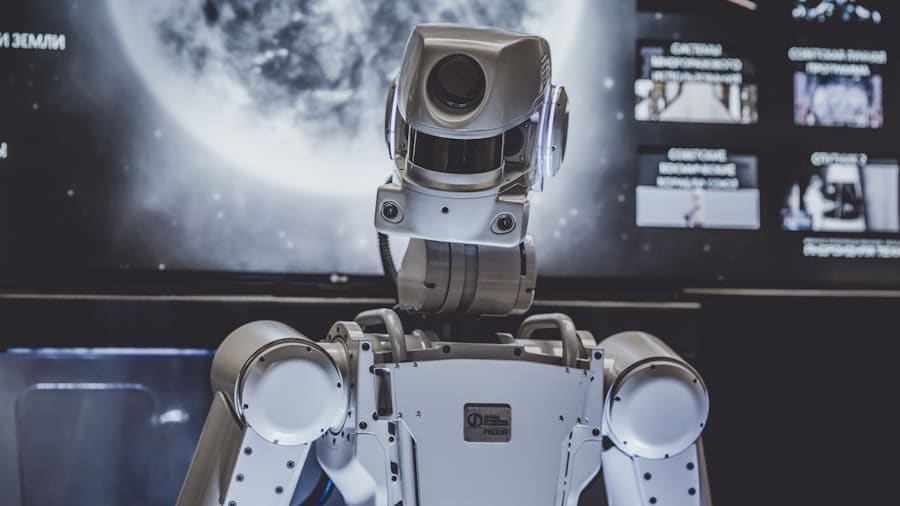In recent years, the landscape of business operations has been dramatically transformed by the advent of technology, particularly through the integration of artificial intelligence (AI) and robotic process automation (RPA). AI-powered RPA represents a significant leap forward in automating routine tasks that were once the domain of human workers. By combining the capabilities of AI—such as machine learning, natural language processing, and data analytics—with RPA, organizations can achieve unprecedented levels of efficiency and accuracy.
This synergy not only streamlines operations but also allows businesses to focus on more strategic initiatives that drive growth and innovation. The rise of AI-powered RPA is not merely a trend; it is a fundamental shift in how organizations approach their workflows. Traditional RPA tools are designed to automate repetitive tasks by mimicking human actions, such as data entry or processing transactions.
However, when enhanced with AI capabilities, these tools can learn from data patterns, adapt to changes in processes, and even make decisions based on complex algorithms. This evolution enables businesses to harness the power of automation in a more intelligent and responsive manner, paving the way for a future where operational efficiency is paramount.
Key Takeaways
- AI-powered RPA combines artificial intelligence and robotic process automation to streamline repetitive tasks and enhance accuracy and consistency.
- RPA improves business scalability and flexibility by automating processes and allowing for easy adjustments to changing business needs.
- AI-powered RPA optimizes resource allocation by efficiently managing tasks and reducing the need for human intervention.
- RPA increases productivity and speed by automating time-consuming tasks and allowing employees to focus on more strategic activities.
- AI-powered RPA reduces operational costs and human error, leading to improved efficiency and overall business performance.
Streamlining Repetitive Tasks with RPA
One of the most significant advantages of RPA is its ability to streamline repetitive tasks that consume valuable time and resources. In many organizations, employees spend a considerable portion of their day performing mundane activities such as data entry, invoice processing, and report generation. These tasks, while essential, do not require human judgment or creativity and can be effectively handled by RPA bots.
By automating these processes, businesses can free up their workforce to focus on higher-value activities that require critical thinking and problem-solving skills. For instance, consider a financial services company that processes thousands of invoices each month. Traditionally, this task would involve manual data entry into various systems, leading to delays and potential errors.
By implementing AI-powered RPA, the company can deploy bots that automatically extract relevant information from invoices, validate it against existing records, and input it into the appropriate systems. This not only accelerates the invoicing process but also reduces the likelihood of human error, resulting in faster payment cycles and improved cash flow management.
Enhancing Accuracy and Consistency with AI-Powered RPA

Accuracy and consistency are critical components of any successful business operation. Human workers are prone to errors due to fatigue, distractions, or lack of attention to detail. In contrast, AI-powered RPA systems are designed to execute tasks with a high degree of precision.
By leveraging machine learning algorithms, these systems can continuously improve their performance over time, learning from past mistakes and optimizing their processes accordingly. For example, in the healthcare sector, patient data management is a crucial task that requires utmost accuracy. An AI-powered RPA solution can automate the extraction and entry of patient information from various sources, such as electronic health records (EHRs) and insurance claims.
Furthermore, the consistency provided by RPA ensures that every piece of data is handled uniformly, which is essential for maintaining compliance with regulatory standards and improving overall patient care.
Improving Business Scalability and Flexibility with RPA
As businesses grow and evolve, their operational needs often change. Traditional processes may struggle to keep pace with increased demand or shifting market conditions. RPA offers a solution by providing organizations with the scalability and flexibility needed to adapt quickly to new challenges.
With AI-powered RPA, businesses can easily scale their automation efforts up or down based on fluctuating workloads without the need for extensive reconfiguration or additional resources. For instance, during peak seasons such as holiday shopping or tax season, companies may experience a surge in customer inquiries or transaction volumes. An AI-powered RPA system can be rapidly deployed to handle increased workloads by automating customer service responses or processing orders more efficiently.
This adaptability not only enhances customer satisfaction but also allows businesses to maintain operational efficiency without overburdening their human workforce.
Optimizing Resource Allocation with AI-Powered RPA
Effective resource allocation is a cornerstone of successful business management. Organizations must ensure that their human capital is utilized in ways that maximize productivity and drive value. AI-powered RPA plays a pivotal role in optimizing resource allocation by automating routine tasks that would otherwise consume employees’ time.
This allows businesses to redeploy their workforce toward more strategic initiatives that require human insight and creativity. For example, in a marketing department, team members may spend significant time gathering data for campaign performance analysis. By implementing an AI-powered RPA solution to automate data collection and reporting processes, marketers can focus on interpreting insights and developing innovative strategies rather than getting bogged down in administrative tasks.
This shift not only enhances employee satisfaction but also leads to more effective marketing campaigns that drive revenue growth.
Increasing Productivity and Speed with RPA

The speed at which tasks are completed can significantly impact an organization’s overall productivity. AI-powered RPA excels in this area by executing processes at a pace far beyond human capabilities. Bots can work around the clock without breaks or downtime, ensuring that tasks are completed swiftly and efficiently.
This rapid execution translates into shorter turnaround times for critical business functions. Consider an e-commerce company that relies on timely order fulfillment to meet customer expectations. By integrating AI-powered RPA into its order processing system, the company can automate inventory checks, order confirmations, and shipping notifications.
As a result, customers receive real-time updates on their orders, leading to enhanced satisfaction and loyalty. The ability to process orders quickly not only improves customer experience but also positions the company favorably against competitors who may struggle with slower manual processes.
Reducing Operational Costs and Human Error with AI-Powered RPA
Operational costs are a significant concern for businesses across all industries.
By automating repetitive tasks, organizations can minimize the need for additional staff while maintaining high levels of productivity.
Furthermore, the reduction in human error associated with automated processes translates into fewer costly mistakes and rework. In the insurance industry, for example, claims processing is often fraught with complexities that can lead to delays and errors if handled manually. An AI-powered RPA solution can streamline this process by automatically verifying claims against policy details and flagging any discrepancies for further review.
This not only accelerates claims resolution but also reduces the likelihood of fraudulent claims slipping through the cracks. The financial implications are significant; faster claims processing leads to improved customer satisfaction while simultaneously lowering operational costs.
The Future of Business Efficiency with RPA and AI
As organizations continue to navigate an increasingly competitive landscape, the integration of AI-powered robotic process automation will play a crucial role in shaping the future of business efficiency. The ability to automate repetitive tasks while enhancing accuracy, scalability, and resource allocation positions companies for success in an era where agility and innovation are paramount. With ongoing advancements in AI technology, businesses can expect even greater capabilities from RPA solutions in the years to come.
The future holds immense potential for organizations willing to embrace this transformative technology. By leveraging AI-powered RPA not only as a tool for automation but as a strategic partner in their operations, businesses can unlock new levels of efficiency and effectiveness. As they do so, they will be better equipped to respond to market demands, enhance customer experiences, and ultimately drive sustainable growth in an ever-evolving business environment.
If you are interested in exploring how technology can improve efficiency in various industries, you may also want to check out

